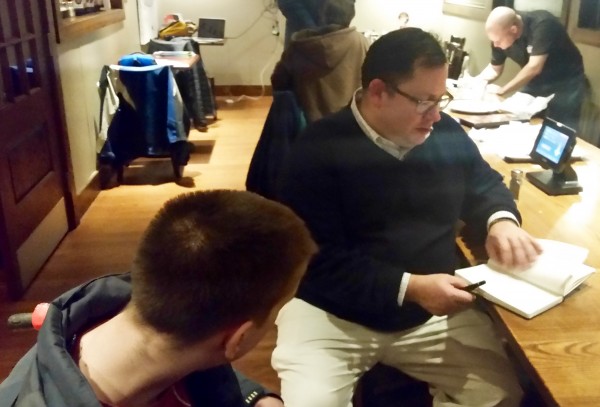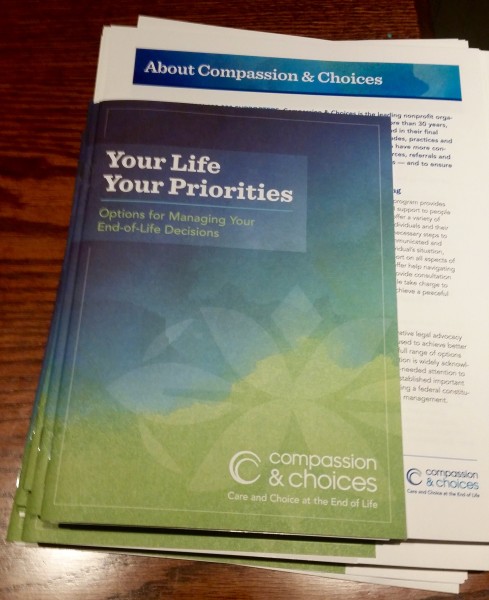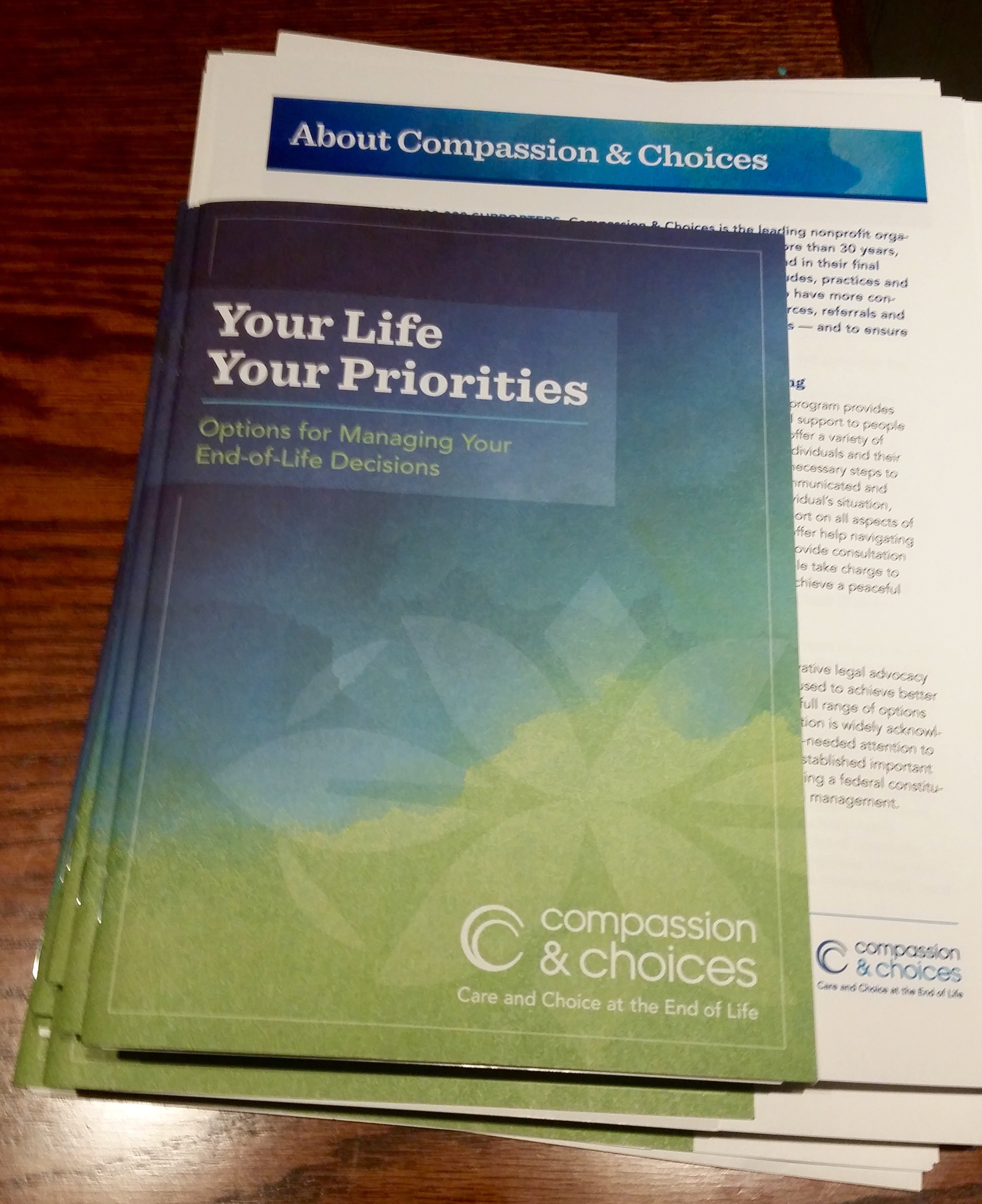
Tim Appleton, campaign manager at Compassion and Choices, was talking to a full room about “medical aid-in-dying.” This would take the form of legislation that would allow a terminally ill, mentally capable person with a medical prognosis of six months or less to obtain and, if their suffering becomes unbearable, self-administer medication that brings about a peaceful death.
This is presently the law in five states: Oregon, Washington, Montana, Vermont and California. One in seven Americans currently have this option available. In Rhode Island, if a person wanted this option, their best bet would be to establish legal residency in Vermont. Obviously, this is not something that everyone can do.
 Last year, the Lila Manfield Sapinsley Compassionate Care Act, introduced in the State Senate by Gayle Goldin and in the House by Edith Ajello, died in committees. Whether or not the legislation will be reintroduced this year is an open question. What the legislation needs is a group of passionate supporters ready for a multiyear effort at the State House to make this happen.
Last year, the Lila Manfield Sapinsley Compassionate Care Act, introduced in the State Senate by Gayle Goldin and in the House by Edith Ajello, died in committees. Whether or not the legislation will be reintroduced this year is an open question. What the legislation needs is a group of passionate supporters ready for a multiyear effort at the State House to make this happen.
Last year the Catholic Church and some members of the disabled community spoke out against the bill. The opposition from the Catholic Church is to be expected. Across the country the Church has spent millions of dollars defeating similar legislation in other states, mostly by telling stories about people being coerced into taking their lives. For the disabled community these stories of misuse and coercion are serious concerns, but Appleton is clear that in the United States, where this idea has been law for nearly two decades, there has “not been a single case of abuse, misuse or coercion.”
Opponents present a false choice between hospice care and aid in dying, but in reality the two ideas are complimentary. Hospice works to manage pain through the process of dying, while this legislation allows the option of ending one’s life in the event the suffering becomes unbearable. This brings a sense of comfort and control to a terrible situation.
The simple fact is that any one of us may one day be in the position of wanting to end our life in the event of a terminal, painful illness, or we may be the caretaker of a loved one suffering through the process. Each of us confronts the end of our lives differently, and this option is not for everyone.
As Governor Jerry Brown said, when he signed California’s act into law, “I do not know what I would do if I were dying in prolonged and excruciating pain. I am certain, however, that it would be a comfort to be able to consider the options afforded by this bill. And I wouldn’t deny that right to others.”



